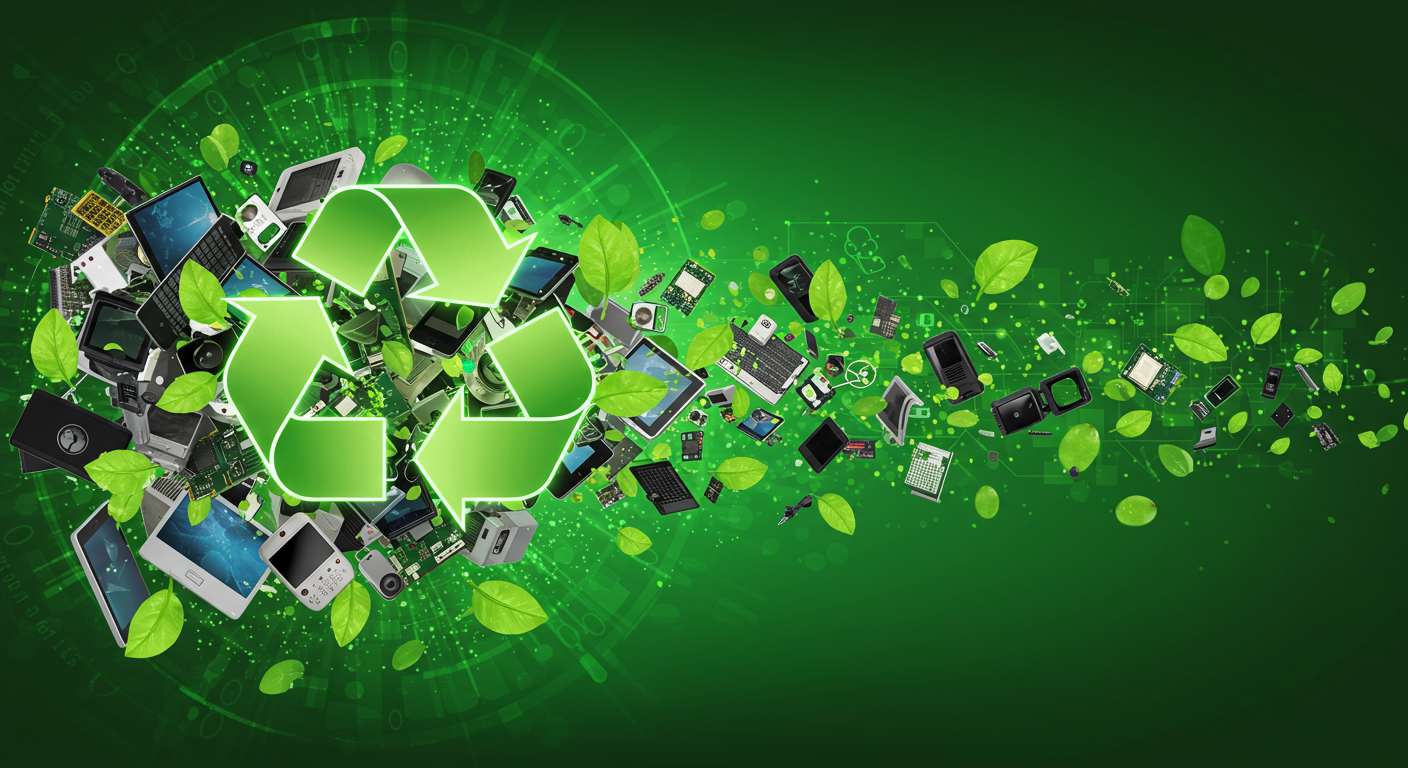E-Waste Recycling: A Smarter Approach to Managing Electronic Waste for a Greener Tomorrow

Technology has become an inseparable part of modern life. Every year, millions of people upgrade their smartphones, laptops, tablets, and home appliances in search of faster performance and better features. However, this rapid digital transformation has also created a serious environmental issue—electronic waste, commonly known as e-waste. Discarded devices not only clutter landfills but also release toxic chemicals into the environment.
E-Waste Recycling offers a responsible and sustainable solution to manage this growing problem. Instead of letting electronic waste damage our planet, recycling makes it possible to extract valuable materials and reuse components, converting waste into economic opportunities while protecting the environment.
What Is E-Waste Recycling?
E-waste recycling is the process of collecting old electronic devices and processing them to recover reusable materials. These materials include metals like gold, copper, silver, iron, aluminum, and valuable parts that can be used again in manufacturing. The goal of e-waste recycling is to minimize waste, reduce environmental pollution, and reuse resources that would otherwise require energy-intensive mining.
Electronic devices are made from a complex mix of plastics, metals, glass, wires, and chemicals. Without proper recycling, these harmful components can contaminate soil, water, and air. E-waste recycling ensures responsible disposal while recovering valuable materials safely.
Why E-Waste Recycling Is Important
-
Prevents Environmental Pollution
Most electronic devices carry toxic substances such as lead, mercury, cadmium, and brominated flame retardants. If disposed of in regular landfills, these chemicals leak into the environment and harm human health. Recycling keeps these hazardous materials under control. -
Saves Natural Resources
Electronics contain rare minerals and precious metals that are limited in supply. Recycling allows industries to recover and reuse these materials, reducing the need for mining new resources. -
Reduces Energy Use and Emissions
Manufacturing metals from recycled electronics consumes less energy than production from raw ores. This helps lower greenhouse gas emissions and supports climate protection efforts. -
Encourages Sustainable Production
Through e-waste recycling, industries move toward a circular economy by reusing materials instead of constantly extracting new ones. -
Boosts Employment and Local Economy
The e-waste recycling industry generates jobs in collection, refurbishment, dismantling, and material recovery. It also supports small businesses and recycling facilities.
How E-Waste Recycling Works
The e-waste recycling process involves multiple stages designed to ensure efficiency, safety, and material recovery.
-
Collection
Old electronics are collected from homes, offices, retailers, and recycling bins before being transported to processing centers. -
Sorting
Items are sorted manually or using machines based on their category, such as circuit boards, batteries, computer parts, mobile phones, and cables. -
Dismantling
Skilled workers disassemble devices to separate parts like processors, hard drives, screens, and plastic casings. -
Data Wiping
Any data stored on devices is securely erased to protect user privacy before recycling begins. -
Shredding and Separation
Devices are shredded into pieces, and materials like metals, plastics, and glass are sorted using techniques like magnetic, gravity, or airflow separation. -
Material Recovery
Valuable metals and elements are extracted and refined for reuse in manufacturing new products. -
Safe Disposal
Non-recyclable or hazardous materials are disposed of carefully following safety guidelines and environmental regulations.
Challenges in E-Waste Recycling
Despite its benefits, e-waste recycling still faces several challenges:
-
Low public awareness about proper disposal
-
Insufficient collection points in developing regions
-
Informal recycling practices that are unsafe and harmful
-
Complicated product designs that are hard to dismantle
-
Weak enforcement of recycling laws
-
Increase in illegal dumping or export of e-waste
Benefits of Recycling E-Waste
-
Prevents soil and water contamination
-
Reduces manufacturing costs through recovered materials
-
Promotes responsible resource usage
-
Lowers carbon emissions
-
Encourages innovation in recycling technologies
-
Improves public health by reducing exposure to toxins
Role of Government and Companies
Governments can support e-waste recycling by creating strict regulations, launching awareness campaigns, and encouraging manufacturers to take responsibility for product disposal. Policies like Extended Producer Responsibility (EPR) make companies accountable for recycling their products after use.
Businesses can also contribute by designing products that are easier to repair and recycle, offering take-back programs, and partnering with certified recycling organizations.
How Individuals Can Help
Every person plays a role in reducing e-waste:
-
Recycle electronics at certified drop-off centers
-
Donate working devices instead of throwing them away
-
Trade-in or return old electronics to manufacturers
-
Repair devices before replacing them
-
Avoid unnecessary upgrades
-
Spread awareness about responsible recycling
Future of E-Waste Recycling
The future of e-waste recycling lies in advanced technology and global cooperation. With innovations like automated dismantling, AI-based sorting, and advanced metal recovery methods, recycling will become faster and more efficient. More countries are expected to adopt stricter e-waste regulations, promoting responsible disposal worldwide.
Conclusion
E-Waste Recycling is not just an environmental necessity; it is a smart economic and social choice. By recycling electronics responsibly, we conserve resources, reduce pollution, save energy, and create job opportunities. Whether you are a student, a business owner, or a consumer, you can contribute to a cleaner and more sustainable future by choosing to recycle your electronic devices responsibly. The solution begins with awareness and action, one device at a time.
- AI
- Vitamins
- Health
- Admin/office jobs
- News
- Art
- Causes
- Crafts
- Dance
- Drinks
- Film
- Fitness
- Food
- Παιχνίδια
- Gardening
- Health
- Κεντρική Σελίδα
- Literature
- Music
- Networking
- άλλο
- Party
- Religion
- Shopping
- Sports
- Theater
- Wellness


